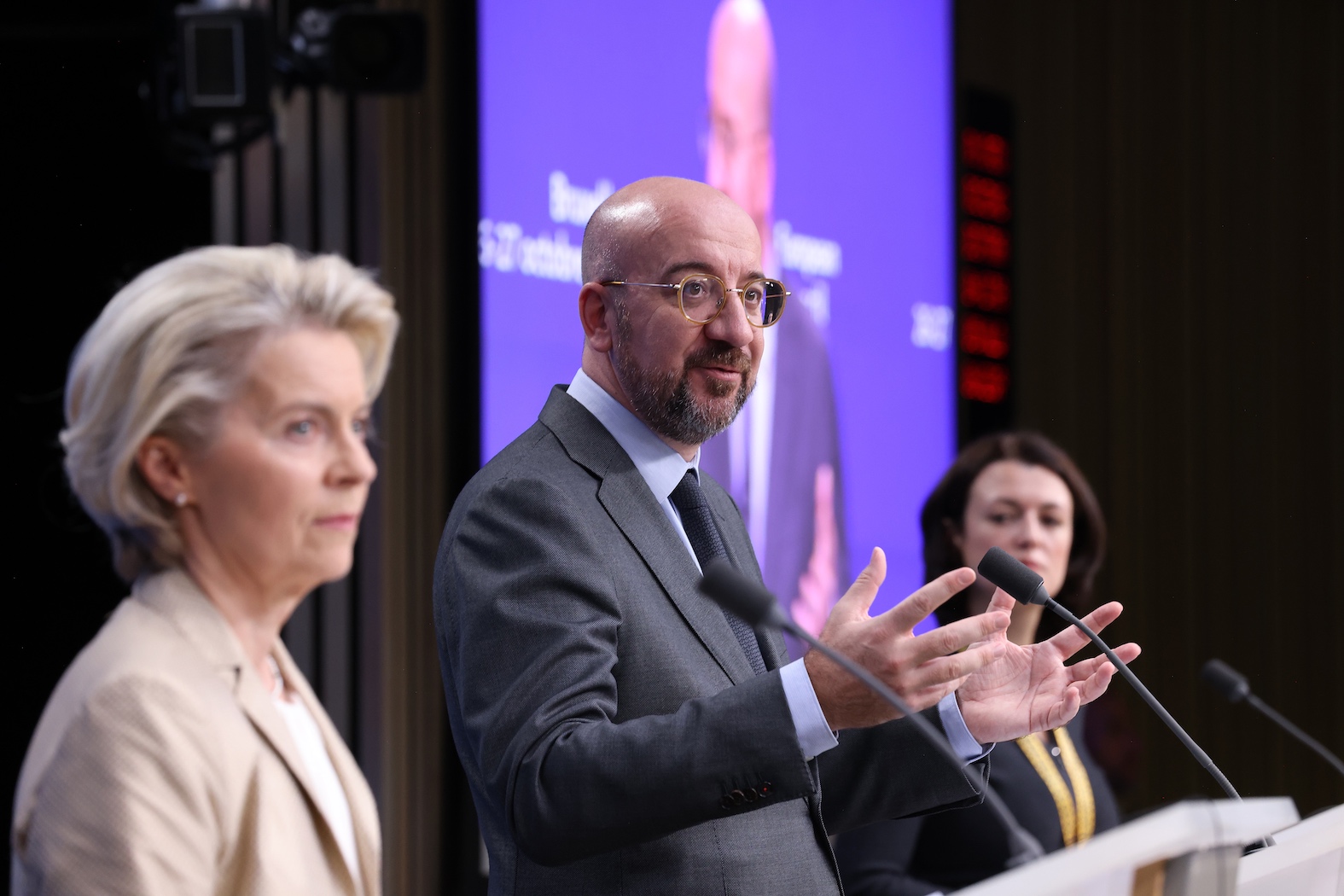EU reaffirms support for Ukraine as budget battle looms in December

EU leaders reassured Ukraine on Friday (27 October) of their continued support as they face tough negotiations over the bloc’s budget and an unpredictable war in the Middle East, Euractiv informs.
“It was very clear in the debate, despite the geopolitical tensions in the Middle East, our focus continues to be on supporting Ukraine We will continue delivering the much-needed weapons and ammunition. We will continue providing the much-needed financial relief,” European Commission President Ursula von der Leyen told reporters after Friday’s talks.
In their final summit communiqué, EU leaders reiterated that the bloc “will continue to provide strong financial, economic, humanitarian, military and diplomatic support to Ukraine and its people for as long as it takes”.
On military support, EU leaders asked the EU’s chief diplomat “to consult with Ukraine on the EU’s future security commitments and to report back on those discussions at the European Council meeting in December”.
However, the next step for December is likely to be the battle to get the proposed €50 billion package for Ukraine approved before the end of the year.
Overall EU support for Ukraine has so far totalled almost €83 billion since Russia invaded in February 2022, according to the latest numbers by the EU’s executive announced this week.
Earlier this year, the European Commission proposed to member states they should contribute more funds in a revision to its shared budget to finance additional shared spending through 2027, including extending €50 billion in new aid to Ukraine.
Beyond sending it money and military aid, the bloc has so far imposed eleven rounds of sanctions on Russia.
The EU is now consulting with member states on the twelfth sanctions package targeting Russia, von der Leyen said, noting that the bloc was looking in particular at how to cut the remaining revenues Russia draws from the export of diamonds.
The European Commission is also expected to present a proposal on how to use the proceeds from Russian assets, she said, adding that the idea was to pull windfall profits and channel them via the EU budget to Ukraine.
Rogue countries teaming up for December?
But while most EU leaders on Friday backed granting more financial support to Ukraine, Hungary and Slovakia voiced reservations ahead of a decision the bloc needs to make unanimously at their December summit.
After his meeting with Russia’s President Vladimir Putin, Hungary’s Prime Minister Viktor Orban said on Friday that the EU strategy of sending money and military aid to Ukraine to help it fight against Moscow has failed.
So far, Orban has said he would not endorse in its current form the proposed EU budget revision, which includes the €50 billion in new aid for Kyiv, but he did not outright reject the proposal.
A likely bargaining chip for Budapest is likely to be the billions in aid earmarked for Hungary in the EU budget that have been blocked by the European Commission over accusations that Orban has damaged democracy in his country.
Over the past year, Hungary has also been delaying tranches of military aid under the European Peace Facility (EPF). Despite the recent withdrawal of the Hungarian bank OTP from the Ukrainian list of international sponsors of the war, the Hungarian authorities have not given their agreement to release the most recent tranche of €500 million.
For December, Hungary might be eying to team up with Slovakia and its freshly sworn-in pro-Russian Prime Minister Robert Fico for tough negotiations around greenlighting the bloc’s reviewed budget.
Before attending his first EU summit in the new post, Fico said on Thursday (26 October) his country would be stopping military aid to Ukraine.
Slovakia is stopping military aid to Ukraine, the country’s freshly sworn-in pro-Russian Prime Minister Robert Fico announced on Thursday (26 October) in a move likely to cause tensions with his European counterparts at an EU summit in Brussels later in the day.
Fico said there was endemic corruption in Ukraine and demanded that any new aid should include guarantees that the funds will not be misappropriated, according to a statement from his office on Friday.